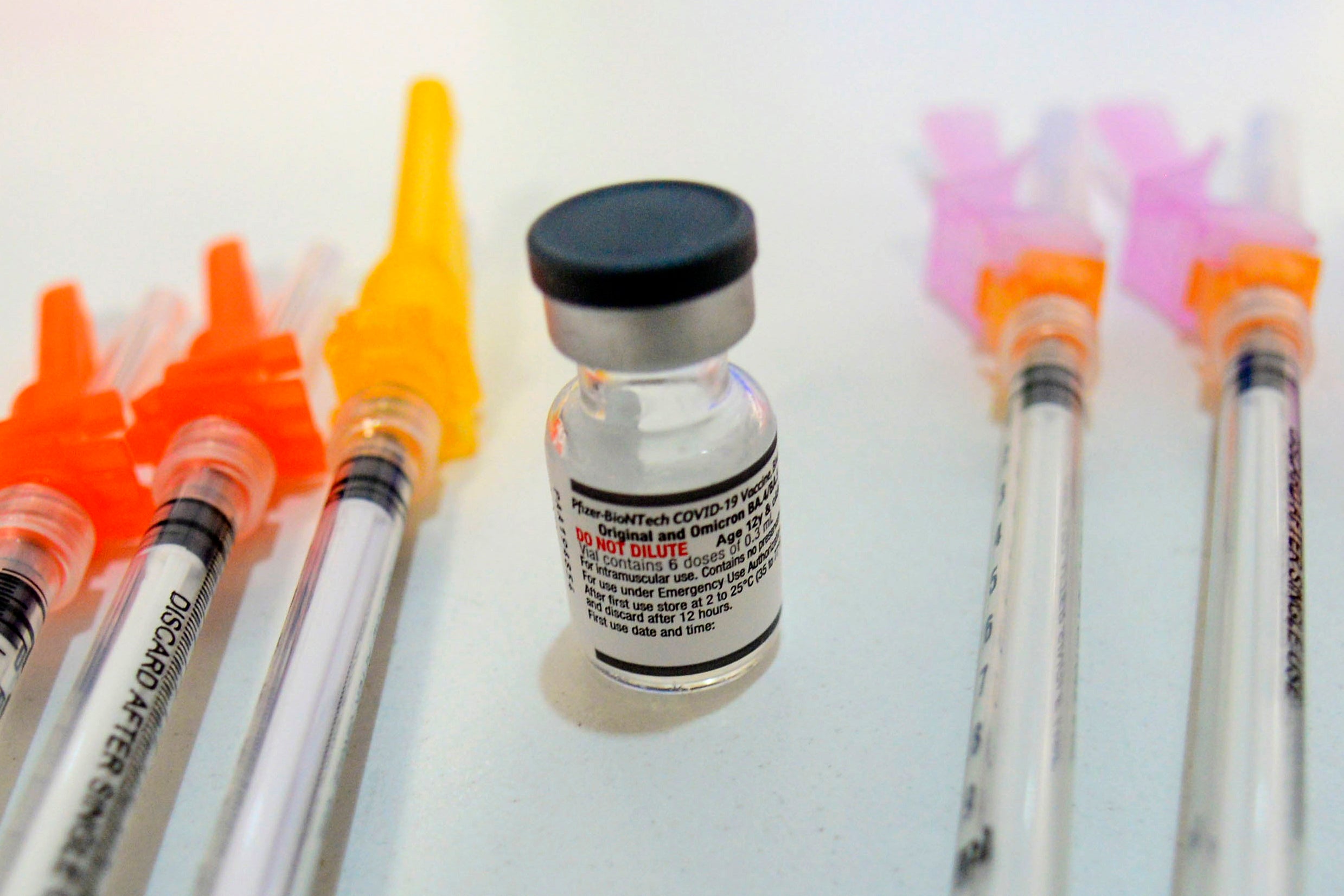FDA’s vaccine advisers to consider future of COVID-19 vaccination in US
(CNN) — A panel of independent experts that advises the U.S. Food and Drug Administration on its vaccine decisions will hold a full day of meetings Thursday to consider what the future of COVID-19 vaccination should look like in the United States.
Currently, the United States is offering two types of COVID-19 vaccines. The first shots people get — also called the primary series — contain a single set of instructions that teach the immune system to fight off the original version of the virus, which emerged in 2019.
The problem is that this index strain is no longer circulating. It was overrun months ago by an ever-evolving parade of new variants.
So last year, in consultation with its vaccine advisers, the FDA decided that it was time to update the vaccines. These new bivalent shots contain two sets of instructions; one set reminds the immune system about the original version of the coronavirus, and the second set teaches the immune system to recognize and fight off Omicron’s BA.4 and BA.5 subvariants, which emerged in the United States in 2022.
People who have had their primary series of shots — nearly 70% of all Americans — were advised to get the new two-strain booster late last year in an effort to upgrade their protection against the latest variants.
Will yearly COVID-19 shots catch on?
But uptake of the new boosters has been slow. Just 15% of the population has gotten one since they were first offered in September.
A separate but related problem is that previously unvaccinated Americans — a group that includes infants and young children who are just reaching the age of eligibility for their COVID-19 shots — are still being immunized against a virus strain that they’re not likely to ever encounter.
So the FDA’s advisers are expected to vote Thursday on whether the United States should be offering just one type of COVID-19 shot for both the primary and booster doses. The committee is also expected to consider how many strains of the virus should be in the shot and how and when those strains should be chosen.
The idea is that most people would be urged to get an updated COVID-19 shot once a year, the same way they do for influenza. People who are unlikely to have an adequate response to a single dose of the vaccine — such as the elderly or those with a weakened immune system — would be advised to get two doses each year, as would people who are getting COVID-19 vaccines for the first time.
Are bivalent shots effective? And safe?
Another big question likely to be considered by the advisory committee is just how well the two-strain shots are working.
Early studies on the effectiveness of these new vaccines have been mixed. Some have suggested that they offer better protection compared with the original single-strain shots, while others have concluded that the protection is about the same.
On Wednesday, the U.S. Centers for Disease Control and Prevention released one of the first real-world looks at the effectiveness of the bivalent boosters against the Omicron subvariants BA.5 and XBB and XBB.1.5.
That study, which used the results of nearly 30,000 COVID-19 tests taken at pharmacies, determined that on average, the bivalent boosters are cutting the risk of a symptomatic infection by about half, even against the rapidly spreading XBB.1.5 subvariant. Protection against severe disease and death is likely to be even higher.
Another question the FDA advisory committee will probably consider is how safe the bivalent boosters seem to be.
The CDC and the FDA said this month that they had detected a potential safety signal with the Pfizer boosters. In a single database of medical records from a group of large hospital systems in the United States, the updated Pfizer boosters were associated with a higher risk of strokes caused by blood clots in people over the age of 65.
The CDC said it has looked for — but failed to find — the same safety signal in other databases and in other countries that use the Pfizer vaccines. It continues to update its evaluations with new data, but the agency said that it seems to be a statistical fluke and that no changes to vaccination recommendations are warranted at this time.
The meeting is set to begin at 8:30 a.m. EST and will be publicly available via webcast.



